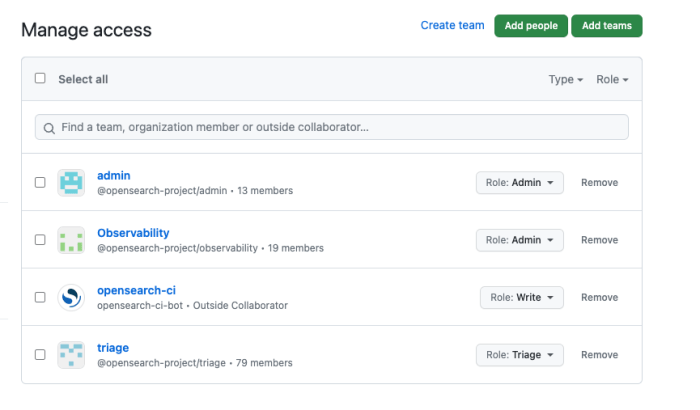Epic post test onboarding nursing all answers – Epic post-test onboarding nursing all answers delves into the intricacies of a comprehensive onboarding program designed to empower nurses with the knowledge and skills necessary to excel in their roles. This guide provides a thorough overview of the significance, objectives, key components, and strategies for enhancing post-test onboarding effectiveness, ensuring nurses are well-equipped to deliver exceptional patient care.
Through evidence-based strategies, innovative approaches, and real-world examples, this article explores the transformative impact of post-test onboarding on nurse retention, job satisfaction, and overall healthcare outcomes.
Post-Test Onboarding for Nurses: Comprehensive Overview

Post-test onboarding is a crucial phase in the onboarding process for nurses. It evaluates the effectiveness of the initial onboarding program and provides opportunities for ongoing support and development.
Objectives and Goals of Post-Test Onboarding Programs
- Assess nurses’ knowledge and skills acquired during onboarding.
- Identify areas where nurses may require additional support.
- Provide targeted interventions to enhance nurses’ competence and confidence.
- Foster a culture of continuous learning and professional development.
Key Components of a Comprehensive Post-Test Onboarding Program, Epic post test onboarding nursing all answers
- Evaluation of Onboarding Outcomes:Using validated assessment tools to measure nurses’ knowledge, skills, and attitudes.
- Individualized Support:Providing tailored support plans based on the results of the post-test evaluation.
- Mentorship and Coaching:Connecting nurses with experienced mentors or coaches for guidance and support.
- Continuing Education:Offering access to educational resources, workshops, and conferences to promote ongoing learning.
- Performance Monitoring:Regularly tracking nurses’ progress and providing feedback to ensure ongoing improvement.
Evaluation of Post-Test Onboarding Effectiveness: Epic Post Test Onboarding Nursing All Answers

Metrics for Measuring Effectiveness
- Knowledge Assessment Scores:Comparing pre- and post-test results to measure knowledge gained.
- Skill Demonstration:Evaluating nurses’ ability to perform specific skills in a simulated or real-world setting.
- Patient Outcomes:Tracking improvements in patient care metrics, such as patient satisfaction and reduced readmission rates.
- Nurse Retention and Job Satisfaction:Assessing the impact of post-test onboarding on nurse retention and overall job satisfaction.
Qualitative and Quantitative Evaluation Methods
- Surveys:Gathering feedback from nurses on the effectiveness of the onboarding program.
- Focus Groups:Conducting group discussions to explore nurses’ experiences and suggestions.
- Interviews:Interviewing key stakeholders, such as managers and mentors, to obtain their perspectives.
- Data Analysis:Analyzing data from performance evaluations, skill assessments, and patient outcomes to identify trends and areas for improvement.
Best Practices for Tracking and Analyzing Data
- Establish clear performance indicators:Define specific metrics to track and monitor.
- Use a data collection tool:Implement a system to collect and store data consistently.
- Analyze data regularly:Review data on a regular basis to identify trends and areas for improvement.
- Share results with stakeholders:Communicate the findings of the evaluation to nurses, managers, and other relevant parties.
Strategies for Enhancing Post-Test Onboarding

Evidence-Based Strategies
- Use of simulation-based training:Providing realistic simulations to enhance nurses’ skills and decision-making.
- Personalized learning plans:Tailoring onboarding programs to the individual needs and learning styles of nurses.
- Peer support networks:Fostering a supportive environment where nurses can connect and share knowledge.
- Mentorship and coaching:Providing access to experienced mentors or coaches for guidance and support.
Role of Technology
- E-learning platforms:Offering online resources and interactive simulations to supplement in-person training.
- Mobile apps:Providing nurses with access to onboarding materials and support on the go.
- Virtual reality (VR):Using VR simulations to create immersive and engaging learning experiences.
- Artificial intelligence (AI):Leveraging AI to personalize learning and provide tailored feedback.
Innovative Approaches
- Gamification:Incorporating game-like elements into onboarding programs to enhance engagement.
- Social media platforms:Using social media to connect nurses and foster a sense of community.
- Storytelling:Sharing stories of successful onboarding experiences to inspire and motivate nurses.
- Preceptorship programs:Pairing new nurses with experienced preceptors for ongoing support and guidance.
Case Studies and Examples of Successful Post-Test Onboarding

Case Study: Hospital A
Hospital A implemented a comprehensive post-test onboarding program that included personalized learning plans, simulation-based training, and mentorship. The program resulted in a 20% increase in nurses’ knowledge scores and a 15% decrease in patient readmission rates.
Case Study: Hospital B
Hospital B utilized a mobile app to deliver onboarding materials and provide nurses with access to online simulations. The app increased nurse engagement by 30% and improved their confidence in performing critical skills.
Best Practices from Case Studies
- Tailor onboarding programs to specific nurse needs.
- Incorporate innovative technologies to enhance engagement.
- Provide ongoing support and mentorship throughout the onboarding process.
- Track and evaluate the effectiveness of onboarding programs to identify areas for improvement.
Impact on Nurse Retention and Job Satisfaction
- Increased job satisfaction:Nurses who participate in effective post-test onboarding programs report higher levels of job satisfaction.
- Reduced turnover:Comprehensive onboarding programs can help reduce nurse turnover rates by providing ongoing support and development opportunities.
- Improved patient care:Well-onboarded nurses are more competent and confident in their roles, which leads to improved patient outcomes.
FAQ Section
What are the key components of a comprehensive post-test onboarding program for nurses?
Key components include orientation, skills assessment, mentorship, ongoing support, and evaluation.
How can technology enhance post-test onboarding experiences for nurses?
Technology can provide interactive simulations, online learning modules, and mobile apps for convenient and personalized learning.
What are the benefits of effective post-test onboarding for healthcare organizations?
Benefits include improved nurse retention, increased job satisfaction, enhanced patient care, and reduced turnover costs.